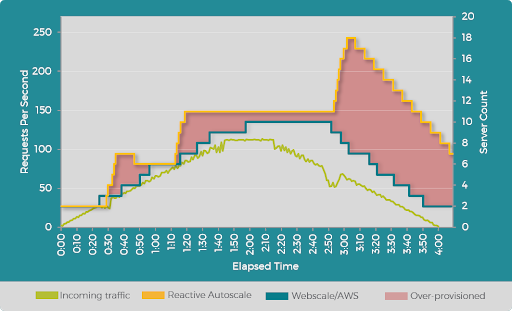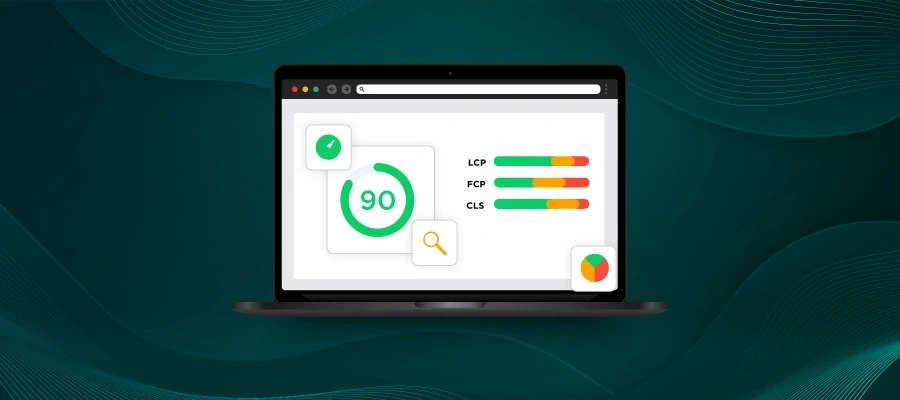Picture this.
You’ve spent weeks preparing for a massive online sale. Your products are priced right. Your social media influencers are primed and ready to help drive shoppers to your storefront.
And they do their job! The sale begins and, within minutes, you’re seeing a record amount of visitors on your site.
And then one of the shoppers types in your storefront’s web address, hits enter and sees this:

And with that they are gone. If they are a pre-existing (loyal) customer, they may well return, but if your marketing programs were designed to reach new customers, there’s an excellent chance they won’t return, and could well be on a competitor’s site.
So how can you make sure this doesn’t happen to your storefront?
If you’re stuck in a (legacy) dedicated hosting environment, your hands are somewhat tied. Dedicated hosting environments rely on physical data center based infrastructure. They are provisioned for a pre-defined maximum capacity, so as you approach peak capacity, your site will slow down, and if that capacity is exceeded, you’re in the 503-zone! If you try and work around this by sizing your infrastructure over and above what you need, you’ll be paying for capacity you will rarely use.
E-commerce traffic is inherently dynamic and seldom predictable. No matter how great you are at demand forecasting, there is no way to predict your traffic during a sale, or in response to an aggressive marketing promotion, with 100% accuracy. Therefore, site crashes are an inevitable and frequent problem with dedicated hosting setups.
There has to be a better (and more economical) way of dealing with this. Well, there is, and it’s called auto-scaling.
What is Auto-Scaling?
Auto-scaling uses cloud-based compute resources (web servers) which are added to (known as a scale-out event) or removed from (known as a scale-in event) an online storefront’s infrastructure, automatically, based on its needs at that point of time. In so doing, it automatically adjusts the capacity of your site to respond to changing demand (site traffic).
Benefits:
- Implementation of auto-scaling can result in 100% site availability (or uptime) consistently, in the most cost-effective manner, regardless of traffic volumes.
- It’s the best way to ensure that your site never crashes, especially during your storefront’s busiest periods.
- You don’t need to overpay for unused capacity as your infrastructure is always right-sized. Once the unexpected traffic surge subsides, capacity goes back to its usual levels.
- Unlike dedicated hosting plan upgrades, auto-scaling doesn’t take days – or even hours – to spin up additional capacity; it happens in minutes.
- Most importantly, auto-scaling gives your customers 24x7x365 access to your storefront, and a great user experience.
Types of Auto-Scaling
- Scheduled Auto-Scaling: This is an extremely limited form of auto-scaling where the desired minimum and maximum capacities of a site are modified during certain points of time in a day. This approach proves partially useful when dealing with known traffic variations, which take place at certain times (often cyclically), but doesn’t help with huge, unexpected traffic spikes.
- Reactive Auto-Scaling: In this approach, you define the thresholds for scaling metrics such as CPU usage. However, these metrics are usually lagging indicators of high load on the application infrastructure. This means, there is a time lag before additional capacity can be made available. During this time, page loads are slow, online shoppers are frustrated due to the unavailability of the site, and precious revenue can be lost.
- Predictive Auto-Scaling: This approach leverages predictive analytics to forecast demand (site traffic) based on current and historical data. The auto-scaling engine uses these insights to determine the right amount of capacity needed in advance of the traffic surge and scales cloud-based resources out (or in) accordingly. This is by far the most foolproof approach, given the dynamic nature of e-commerce traffic.
Predictive Auto-Scaling with Webscale
Webscale is a pioneer in predictive auto-scaling technology. Webscale’s patented cloud auto-scaling leverages big data and predictive analytics to forecast changes in user demand and proactively scale out / scale in application infrastructure, in real-time.
This ensures 100% uptime and consistently high performance, which translates into a great user experience, regardless of load or traffic surges. In fact, Webscale also automatically scales out its own optimization resources to meet network and CPU demands, thus offloading the backend for critical tasks.
Another advantage of Webscale’s auto-scaling is that you always have right-sized infrastructure. Most cloud provider scaling technologies today are slow to scale out, and even slower to scale in, resulting in reduced performance and increased costs. Webscale’s auto-scaling ensures that your infrastructure is always right-sized and optimally used for the lowest cost and highest ROI, without compromising on user experience.

Webscale’s patented auto-scaling delivers the closest match to an online storefront’s real-time traffic (and infrastructure) needs.
Webscale also actively monitors the status of application resources. This enables the real-time identification of failing applications, immediately halting traffic to those instances, as well as replacing the faulty application servers before they cause disruption.
Online shoppers today have nearly zero tolerance for downtime. Yet, it’s painfully common for e-commerce sites to crash due to unexpected traffic surges.
100% site uptime is achievable if you work with a team of e-commerce infrastructure experts and implement the right set of technologies (such as predictive auto-scaling). Fill out this form or drop us an email at sales@webscalenetworks.com to learn more.













